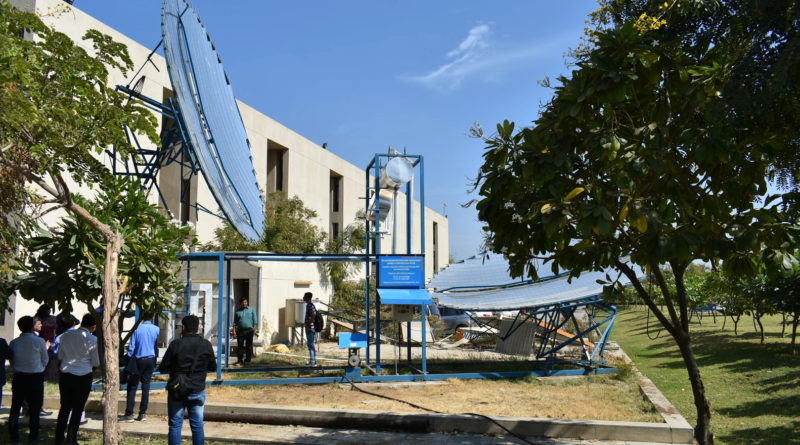Low Cost Water Treatment Systems with Bio-Mimetic and Phytotechnologies
India-H20 is a bilateral project between the EU and India and aims to develop, design and demonstrate high-recovery, low-cost water treatment systems for saline groundwater and for domestic and industrial wastewater. The focus for developments will be in the arid state of Gujarat, where surface water resources are very scarce. Cost-effective technologies and systems are proposed with the aim of lowering energy costs through dramatic improvements in energy efficiency, new bio-based approaches to water recycling, and use of renewable energy. Reject waste streams will be minimised or reduced to zero, thus protecting the environment.
The INDIA-H20 Kick Off Meeting took place from the 18th to the 23rd of February 2019 and was hosted by Pandit Deendayal Petroleum University, in Gandhinagar, Gujarat. ​ This gave all the partners the opportunity to meet each other, and discuss our aims in detail. Our week long meeting allowed us the chance to visit multiple sites over the state of Gujarat, including some of the sites of our Indian Partners, Arvind, GCCI and Madhur Dairy.
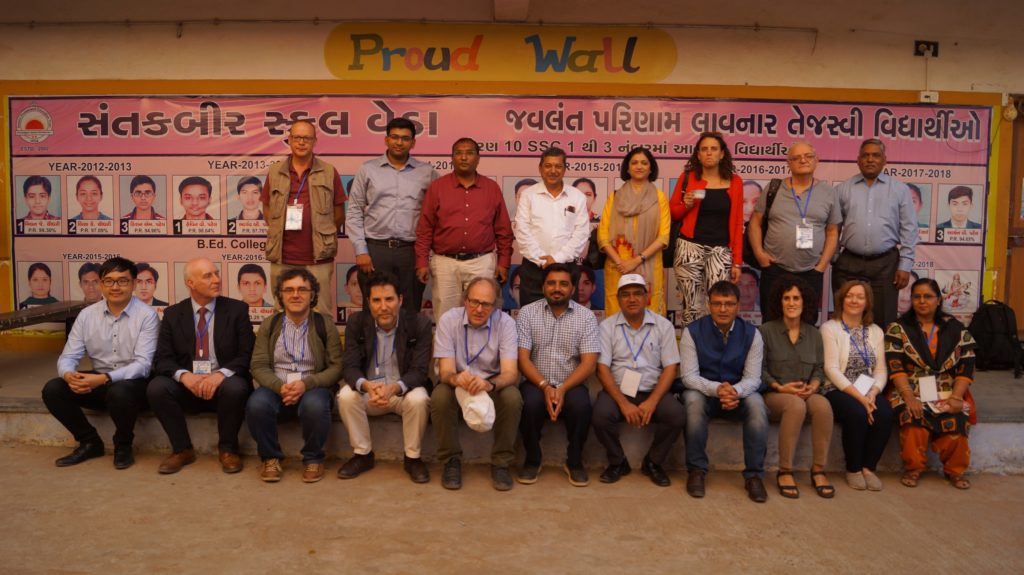
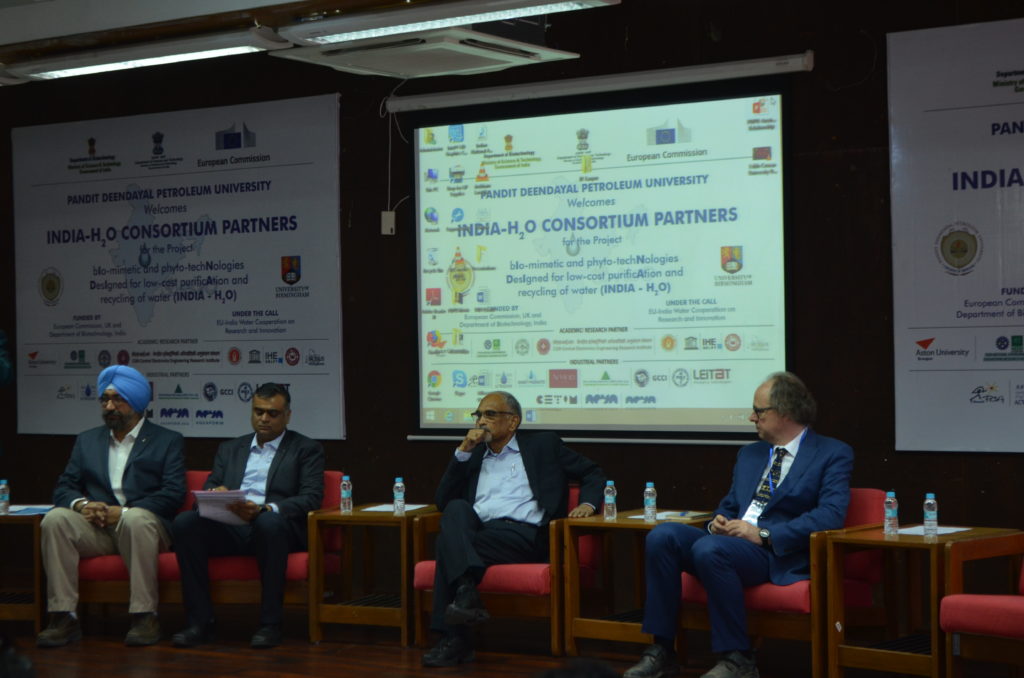
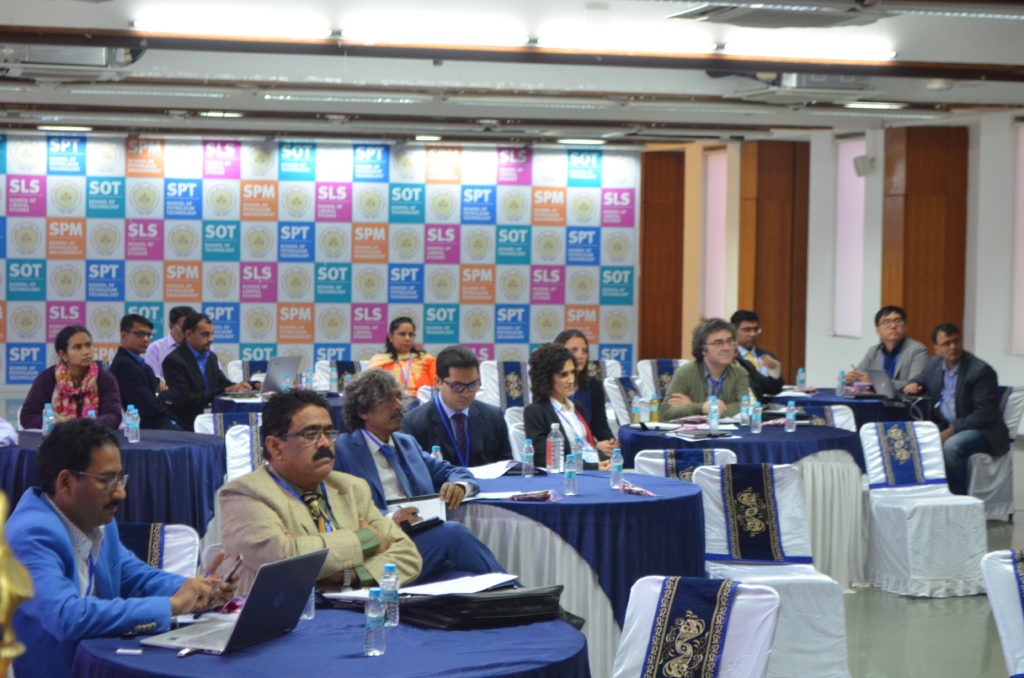
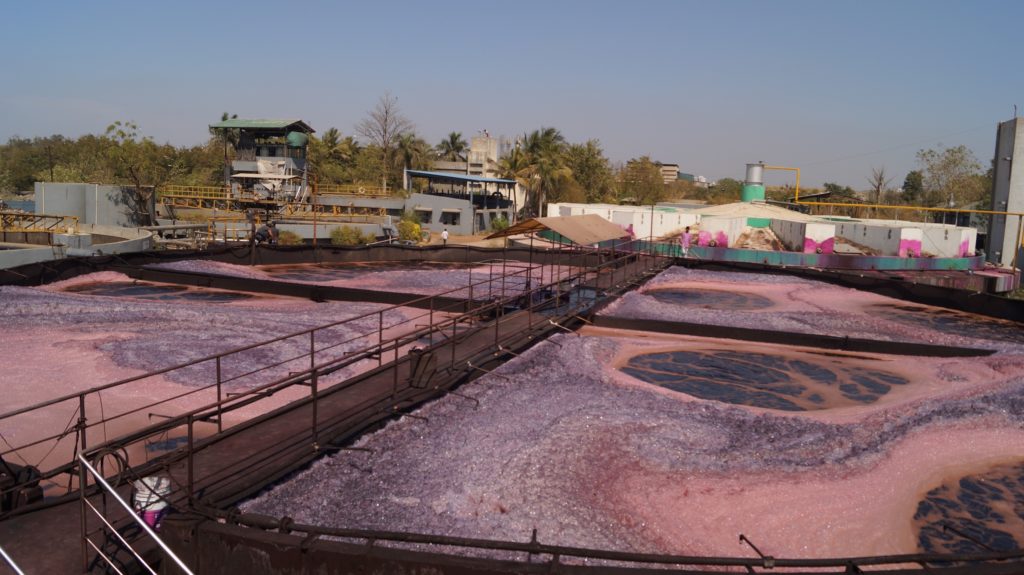
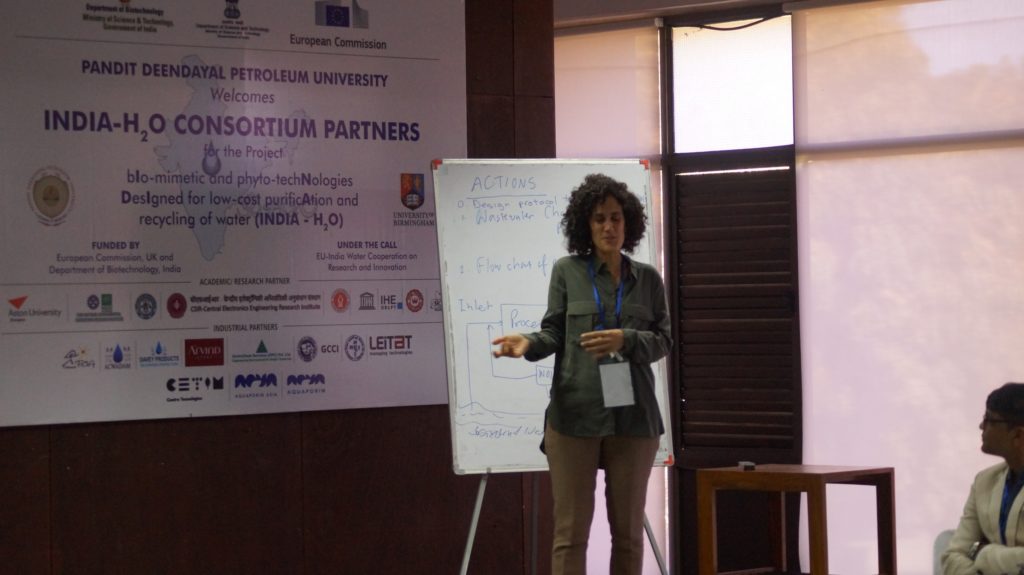
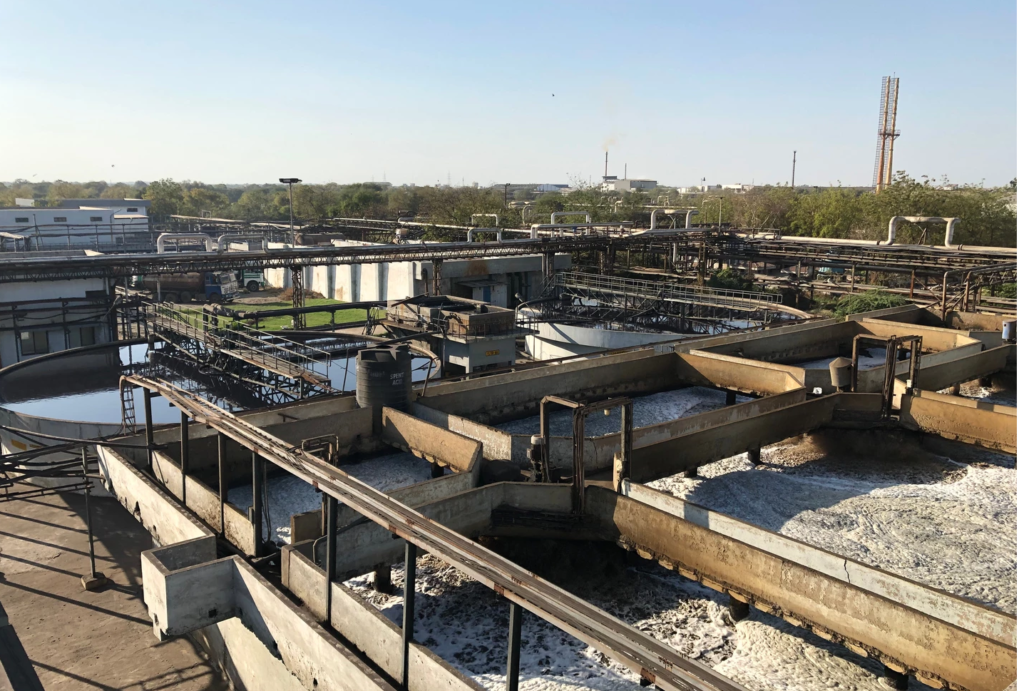
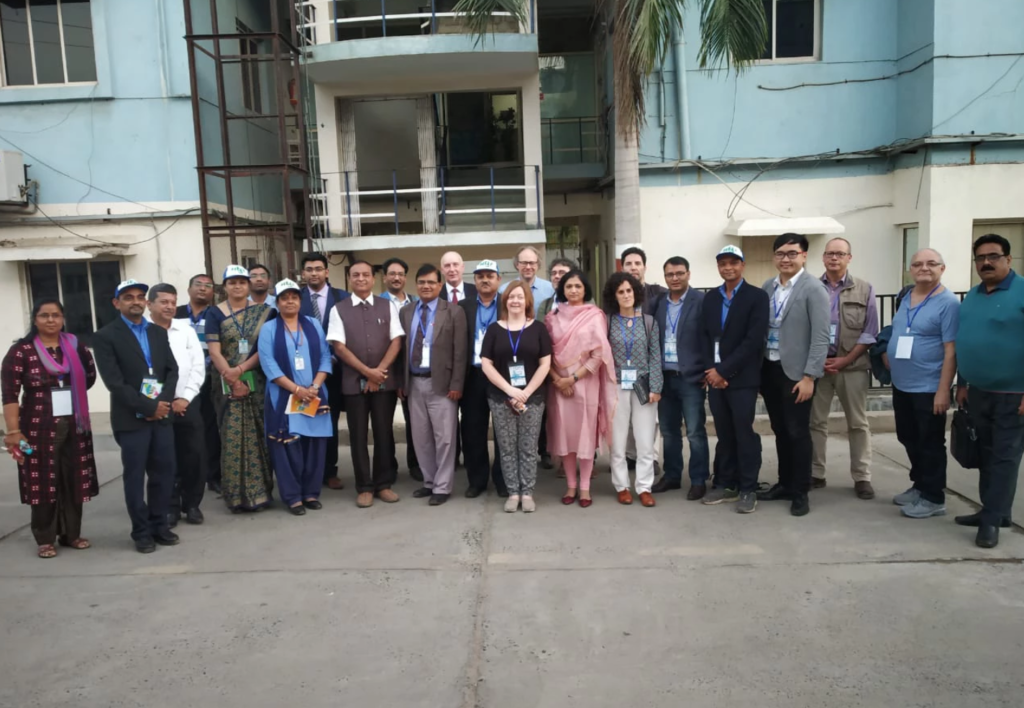
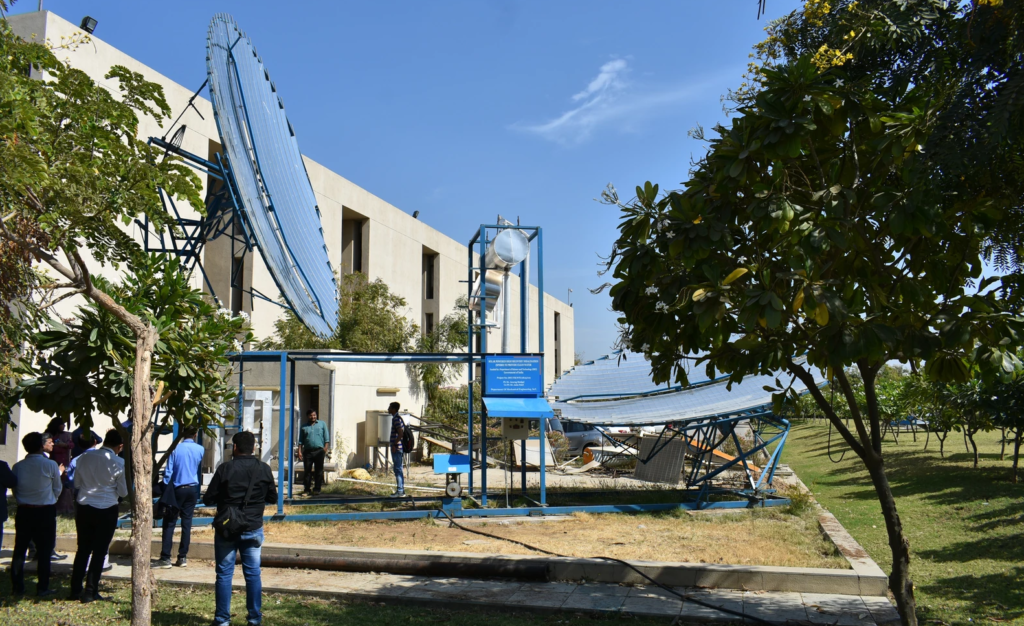
The specific objectives of the project are to:
- 1. Develop and introduce novel batch-reverse osmosis technology for a 4-fold reduction in specific energy consumption with high, 80%, recovery ratios.
- 2. Develop forward osmosis based on revolutionary biomimetic membrane technology, for use in wastewater recovery application including hybrid arrangements with reverse osmosis for further reduction in energy consumption, resulting in an order of magnitude overall reduction in SEC.
- 3. Pilot small-scale (5-50 m3/day) rurally-relevant low-cost systems for brackish groundwater treatment to provide safe drinking water at costs below 0.35/m3 euro (<30 rupees/m3).
- 4. Develop phyto-technology solutions for a) rural domestic wastewater treatment to remove emerging pollutants (e.g. agricultural products), manage rejected brines, and recover energy from the resulting biomass and b) the utilisation of brines, the product of brackish water desalination for drinking water, used for edible halophyte production.
- 5. Develop and demonstrate cost-effective high-efficiency FO/BRO systems with complementary hybrid technologies for industrial desalination, wastewater treatment and recycling with minimum liquid discharge (up to 80% water recovery).
- 6. Create a Centre of Excellence in water treatment membrane technologies design, operation, piloting, demonstration, training and dissemination in India.
- 7. Develop and facilitate the evolution of business models to exploit the developed solutions to mutual EC/India economic advantage.
- 8. Brief and influence policymakers on economic models and governance arrangements for groundwater management and viable adoption of these technologies in India.

